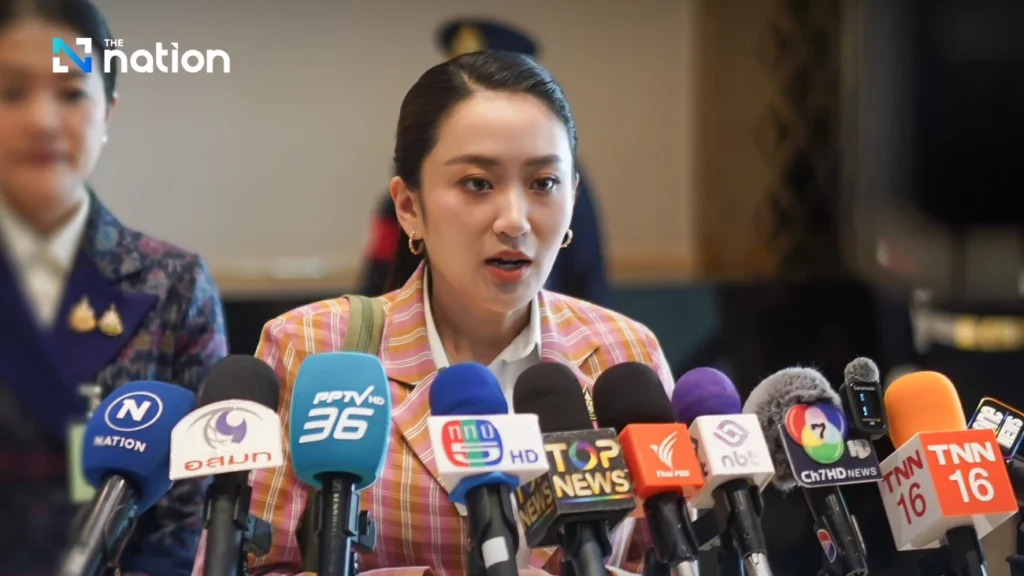
PM Paetongtarn Shinawatra assures response measures, including tax adjustments and a negotiation team, aiming for a compromise and preventing any impact on GDP.
Prime Minister Paetongtarn Shinawatra reassured that there is no need to worry about the US imposing a 36% tariff on Thai imports, as measures are already in place to address the issue. These include restructuring import tariffs and forming a negotiation team, with confidence that talks can yield favorable outcomes. She firmly stated that the move would not impact Thailand’s GDP.
Regarding the US decision to impose a 36% import tariff on Thai products—one of the highest rates in ASEAN—Paetongtarn explained that Thailand needs to adjust its import tax structure with the US and establish a task force for negotiations. She noted that while Thailand does not import a large volume of affected goods, the high tariff places the country among the most impacted. Therefore, both short- and long-term plans are being prepared. In the short term, negotiations will focus on assisting exporters and mitigating the impact. The Ministry of Finance and the Ministry of Commerce are currently working on a resolution.
The Prime Minister emphasized that all necessary measures have been prepared, including initial responses and upcoming negotiations. She clarified that while the average tariff rate is 9%, there are specific limits for different product categories, such as corn. The reported 36% figure is based on a new calculation method that has never been used before, requiring further review to find a balanced approach.
Addressing reports that Thailand imposes a 72% tariff on US imports, the Prime Minister clarified that this is a calculation method rather than the actual rate. In reality, Thailand’s average tariff is 9%. The US calculation method arrives at 72% by considering all upper-limit tariffs. Half of that results in the reported 36% figure, which represents a different approach to tariff calculation—one that Thailand has not previously used.
Following the tariff announcement, she discussed the issue with Deputy Finance Minister Julapun Amornvivat . However, discussions had already been ongoing, particularly regarding the formation of a negotiation team, so there is no need for concern.
Regarding leadership in negotiations, the Prime Minister stated that the matter is currently under the supervision of the Permanent Secretaries of the Ministry of Commerce and the Ministry of Finance. She noted that the representatives involved in discussions will depend on the level of negotiations, as there are multiple stages. At the working level, the Permanent Secretaries will engage in talks, with ministers also involved as needed.
Regarding the impact assessment on Thailand, the Prime Minister stated that the damage is still negotiable, provided that tariff structures can be adjusted to be more reasonable. She emphasized that trade dynamics have shifted to a “More for Less – Less for More” approach, where negotiations play a key role rather than traditional methods. Further details on this matter will be explored.
When asked about reports of Chinese goods being re-exported as Thai products, inflating Thailand’s export figures, the Prime Minister stressed the need for stricter inspections.
On concerns that GDP may miss the government’s target, she affirmed that efforts are in place to prevent this. She discussed the matter with the Deputy Finance Minister that morning, who will assess the situation and provide a public explanation soon.
She emphasized that while the government’s trade strategy is well-structured, adjustments are necessary in light of the new figures. A comprehensive review is underway, led by Phansak Vinyaratn, the Prime Minister’s Chief Policy Advisor on US trade, who oversees all imports and exports. New measures are expected to be announced soon.
Source: The Nation
